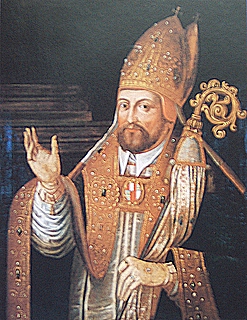 Image via WikipediaHere in Little Piddle, East Yorkshire, there hasn’t been any Broadband since the days when it all began. For years now the people of Piddle have had to forgo the pleasures of the Internet and have , instead, taken up clog dancing and home wine making to while away the hours. “Time weighs heavily” said a near neighbour of Mrs Pringle. The distress of the people of Piddle is dreadful and something MUST be done about things here.
Image via WikipediaHere in Little Piddle, East Yorkshire, there hasn’t been any Broadband since the days when it all began. For years now the people of Piddle have had to forgo the pleasures of the Internet and have , instead, taken up clog dancing and home wine making to while away the hours. “Time weighs heavily” said a near neighbour of Mrs Pringle. The distress of the people of Piddle is dreadful and something MUST be done about things here.The Local councillor has been on the phone about the matter many times but he says he has been thwarted by the powers that be who ask him to send them a picture of the village by email. “You can’t send a decent image though the Internet” said Mr Tinsley “my camera wont let me do little files so what can we do about it? If only the powers that be would let us have that Broadband then everything would be great” he said today.
The local vicar, Doreen, has been asked to see if she can do something for the villagers and quick as a flash she put on a service of hope for everyone. “It was wonderful”, said Doreen “I’ve never seen the church so full.” When asked if it has helped at all Vicar Doreen said” yes it has brought us all closer together.” The village church is a small church that nestles in the valley beside Little Piddle, and herein lies the villages predicament.
According to the Powers that be, Little Piddle is in too deep a valley for UK Broadband to work. A spokesperson for the Powers that be said “ if only Piddle wasn’t in such a deep valley then we could get the Broadband working but as it is there's nothing we can do to help the people of Piddle”.
A wealthy local has offered to fill the valley in a bit with the leftovers from his business but it is felt that this would take too long, some say that the local scrap dealer is a bit mad anyway and that he does not always have the needs of the Villagers in the forefront of his mind.
All may not be lost however for the people of Piddle as a wind farm is being planned for one of the hills in Piddle and it is thought that this will help residents to consider moving to another area where Broadband is readily available.
Mr Greasebee, of Greater Piddle, a large town some three miles distant, says that he and his community would welcome the people of Little Piddle and explained that there was plenty of council accommodation in his Town and that the people of Little Piddle would be given top priority.
Tonight there is to be a public meeting in the Village Hall here in Little Piddle and the matter is to be put to the vote. The local postmistress, however, believes that nothing will be decided as it is unlikely to attract many people. When asked why, the Postmistress replied, “Nobody really wants this Broadband modern thing here anyhow, its just something for us to moan about”.
Will the people of Piddle move to Greater Piddle, will the valley become a car dump, will the powers that be come up with a way round the valley being too deep? We cannot at this stage know how things will turn out, but for now, keep praying for the people of Little Piddle!
This article has nothing to do with Little Piddle a hamlet in Piddletown parish, Dorsetshire, near Piddletown.
















